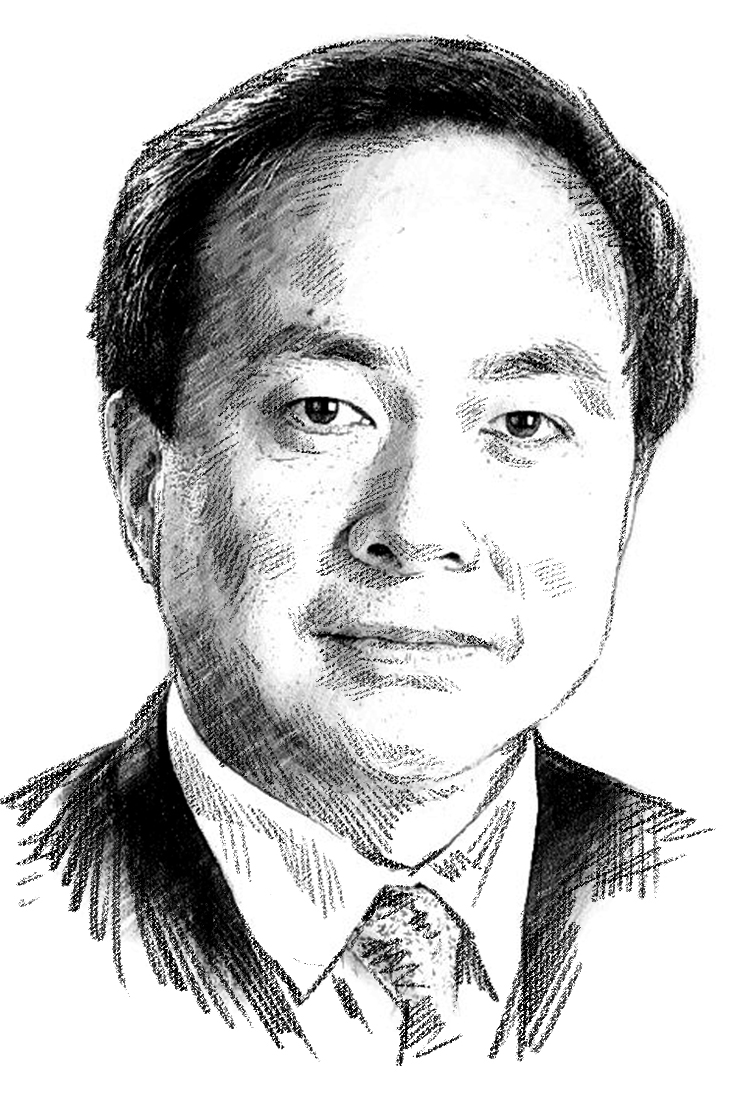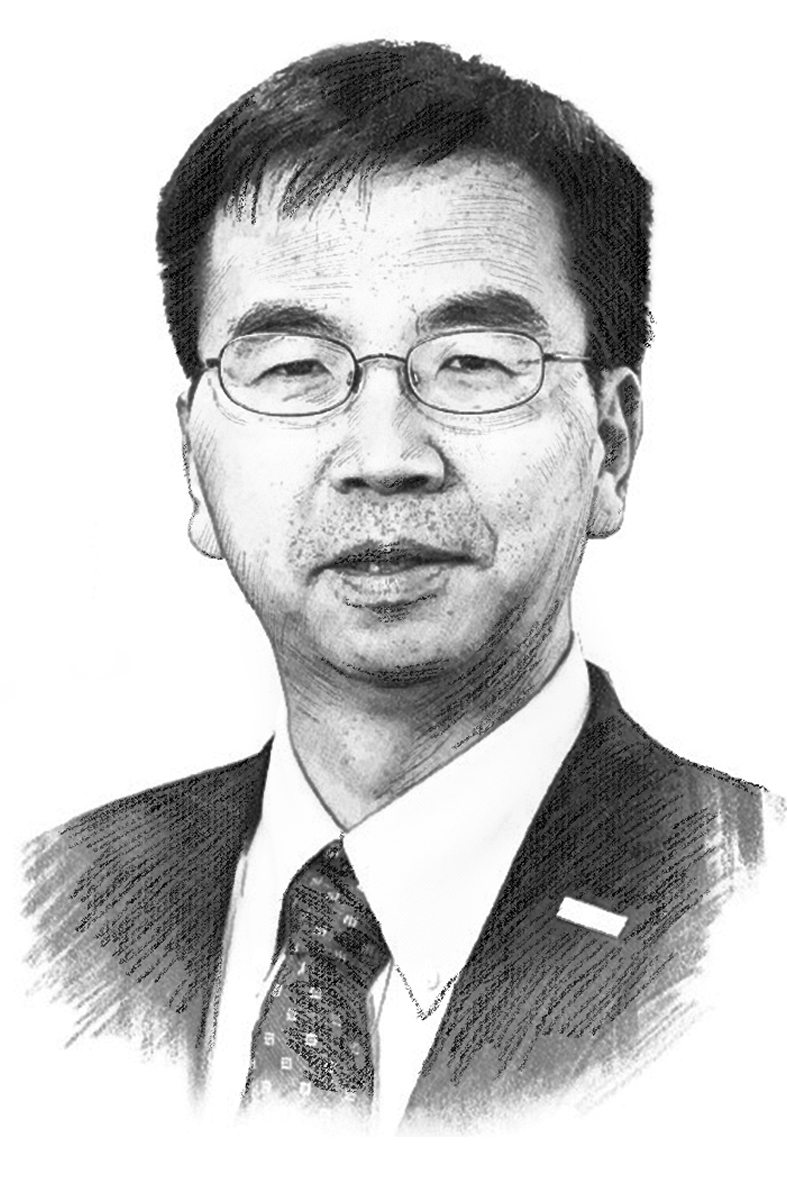Editor’s note: The annual sessions of the National People’s Congress and the National Committee of the Chinese People’s Political Consultative Conference ended with a call for widespread adaptation of the “new normal” economy across all sectors, including those closely related to activities involving international companies operating in China.
The nation’s GDP growth target for 2015 has been lowered to about 7 percent in accordance with this “new normal” pace of expansion, which officials said will be achieved using a mix of policies including risk reduction and economic rebalancing.
China Daily asked a cross-section of senior executives from a variety of multinational companies with operations in China to offer their thoughts on the “new normal” economy and the plans for structural reform. And against that backdrop, we asked how they view their own business prospects in China in the coming year, and whether they are viewing it differently in terms of investment.
Q1:
What impressed you most about the annual Government Work Report released during the two sessions of China’s top legislative and advisory bodies in Beijing? What do you think is the most important issue raised by the government compared with the previous sessions?
Q2:
In the Government Work Report, Premier Li Keqiang said that the nation’s economic growth rate would be adjusted to about 7 percent. Do you think that your company should adjust its development strategy in China accordingly?
Q3:
Amid the global economic downturn, especially in developed economies, and China’s economic adjustment, what is your greatest concern about your company’s operations in China?
Q4:
Which aspect of China’s social and economic reforms should be improved in order to enhance the investment environment to attract more foreign companies?
Q5:
Do you think your company will develop faster in China than the previous year in terms of growth rate or market penetration?

William Niebur, vice-president of DuPont
A1:
We applaud the decision of the country’s central leadership to improve how the government regulates foreign investment and creates a “stable, fair, transparent and predictable” business environment. Premier Li Keqiang said in his Government Work Report that China will halve the number of industries in which foreign investment is restricted. We hope that China’s openness to long-term foreign R&D investment by multinational companies will continue. A focused effort to assure timely reviews of partnership agreements, research agreements and patent reviews, for example, will continue to lend favorably to China’s economic development and prosperity.
A2:
As the world’s second-largest economy, China has emerged as a leader in economic and social development. At DuPont, we recognize the tremendous opportunity that China represents in agriculture since opening local seed operations nearly 15 years ago. From feedstock to fuel-and every step in between-our strategy has been to lead and transform China’s agricultural industry through sustainable productivity increases that enhance food security and rural development. With China’s new opportunities and challenges, DuPont will stick to its overall China strategy, while initiating novel business approaches and actions.
A3:
Intellectual property protection is an issue for the entire agriculture industry, especially Chinese farmers who have a right to receive the quality and authenticity they expect when they buy seed. A modern seed industry would respect intellectual property rights, label products accurately and transparently, create and deliver value through products and services, and reinvest profits into modern R&D programs.
China has made great progress in agriculture, which has spurred research and development in the industry and ensured long-term benefits for the rural population.
A4:
China has obvious advantages in attracting foreign investment given its huge domestic market, strong infrastructure and skilled labor force. While many reforms were considered, those that support China’s emphasis on food security are significant.
As we look to the future, innovation, technology and collaboration remain the pillars of ongoing growth. DuPont is committed to being an essential part of the solution by applying our science and working with partners throughout the value chain.
A5:
We believe China’s current economic transformation indicates significant growth potential and an aggressively progressing reform for 2015 and beyond. We have established long-term investment plans across a number of major farming regions throughout the country, sharing our modern agricultural management knowledge and experience, developing world-class production and logistics systems, and establishing R&D and breeding projects as well as professional agricultural talent development programs.

Celina Chew, president of Bayer Greater China Group
A1:
The part of the Government Work Report that left a deep impression is the clear statement regarding the two “medium-to-highs”, namely, despite the slowdown of the Chinese economy and its focus on reform, it can still maintain a “medium-to-high” speed of growth and achieve a “medium-to-high” level of development.
Premier Li Keqiang emphasized that the double engines will drive development in China in the “new normal”, with its focus on encouraging mass entrepreneurship and innovation, as well as increasing access to goods and services in order to maintain and further improve living standards.
Bayer is happy to see the Chinese government’s emphasis on innovation and improved livelihoods. Innovation is very important to Bayer and has been a key factor in ensuring Bayer’s success and sustainability for over 150 years. Innovation will continue to drive future growth at Bayer and help us fulfill our mission to deliver solutions that improve people’s lives. With our sharpened focus on our Life Science businesses, Bayer Healthcare and Bayer CropScience, we will continue to strive to innovate in the research-intensive areas of human, animal and plant health. This strategy is very much in line with the Chinese government’s aim for a “healthy China”.
A2:
China’s lower economic growth target of around 7 percent is accompanied by the aim of higher quality growth. The government plans to maintain a balance between steady growth and structural adjustments that will put the Chinese economy on a more sustainable path for the future. These structural adjustments will encourage new growth engines, driven by innovation and technology, and promote opening up. We believe that China’s reform plans may bring better business opportunities and we will, of course, adapt our operations accordingly.
As to our overall development strategy in China, Bayer takes a long-term view. Greater China is Bayer’s the third-largest market, after the United States and Germany. It is the largest single market in the Asia-Pacific region and one of Bayer’s key growth drivers. We see huge opportunities to expand our business in China and, at the same time, contribute to a better life for the Chinese people. Our commitment to China continues. For example, this year, Bayer Healthcare will invest around 100 million euros ($105 million) to significantly increase the production capacity of its plant in Beijing to ensure that we can meet the demands for our products in the China market. Last year, Bayer acquired Kunming Dihon Pharmaceutical Co Ltd, a local company with excellent brands, so that we can offer consumers a broader range of options in key segments such as OTC dermatology and TCM. We plan to continue to invest in China and develop sustainable solutions for China’s needs.
A3:
China’s growth fundamentals are basically unchanged. China still holds great economic development potential and opportunities in many industries. We are optimistic about our future prospects in China. Bayer first came to China in 1882. We have set down our roots in China. In 2014, Bayer Greater China had more than 15,500 employees, and generated sales of 4 billion euros. Our mission “Bayer-Science for a Better Life” means that we aim to deliver products and services that benefit people and improve their quality of life. We also live this mission in China by contributing solutions that address some of China’s needs such as medical and healthcare needs, safe and healthy food, and energy efficient solutions. We believe that, with our knowhow and experience, we can contribute to help China achieve its aim for sustainable and profitable growth.
A4:
Foreign companies are concerned with having a more transparent regulatory framework, consistent enforcement, more access to the China market and protection of their legitimate rights. With the draft revision of the Foreign Investment Law, China plans to significantly reduce the number of industries which are restricted in terms of foreign investment. Hopefully, this will mean more opportunities for foreign companies. Protection of the legitimate rights of foreign investors is also very important. For example, in order to encourage innovation in China and nurture a R&D-oriented culture, protection of intellectual property rights is very important. In addition, foreign companies would, of course, like to bring their innovative products to the China market and the support of the Chinese government in terms of a clearer regulatory framework and procedures is appreciated.
A5:
By aligning our key businesses with some of China’s most pressing demands and objectives, we believe we are well-positioned to capture further growth opportunities in China. Bayer CropScience has been active for more than 60 years in the Chinese agriculture sector and has consistently introduced new technologies to Chinese farmers. These products help Chinese farmers increase production yield and manage their crop, and thereby, achieve better results and a better life. Looking ahead, we plan to launch over 20 new crop protection products in China by 2020.
Bayer HealthCare has one of the richest pipelines in the industry and plans to introduce more innovative products in China in the areas of oncology, cardiology, women’s health, and diagnostic imaging.

Jeroen Bloemhard, president of Dow Corning Greater China
A1:
China will foster “twin growth engines” by encouraging mass entrepreneurship and innovation, paired with increasing supplies of public goods and services. That will help create a pro-business environment which will heighten the confidence of existing foreign investors. The most eye-catching proposal-to revive the Silk Road trading routes-will likely bring new growth opportunities to China.
A2:
China has been and will continue to be one of the priority markets for Dow Corning’s global operations and an engine for our future growth. Our business strategy is consistent with the Chinese government’s priorities to realize sustainable and profitable growth.
Customers in industries such as electronics, healthcare, automotive, personal care and high-performance buildings, will continue to benefit from Dow Corning’s silicone innovations.
A3:
The Government Work Report highlights governing by the rule of law, improving government efficiency and eliminating rent-seeking opportunities through a continued anti-corruption drive. We hope the “top-level designed” policy framework will be implemented evenly and equally at local level, thus, it can provide the business community with certainty and clarity while operating in China.
We also value and have been looking forward to a level-playing field created by the government at all levels and a streamlined administrative approval process as already evidenced by the great efforts of the central government.
A4:
Fighting against pollution has been reiterated and shifted to a higher level in this year’s two sessions.
As a company sticking to highest environmental standards and practices, we highly recognize the tremendous progress that the Chinese government has made on environmental protection and emission reduction, and also see the importance of consistent, equal and stringent supervision and law enforcement to achieve the goals, both to local and foreign players.
A5:
Dow Corning started its greater China operations in 1973 in Hong Kong and we have invested $2 billion in China in the past 40 years. This truly reflects our long-term commitment to the country. We are passionate to help our customers in China to succeed with our silicone products and solutions. We are confident that our customers will grow and therefore we are confident of our business growth in the region.

Xie Liping, president of UTC China Aerospace & Government Relations
A1:
We are glad to see that the government is continuously promoting the strategy of developing new approaches to urban construction, and making strong commitment to environmental protection and adoption of energy-efficient solutions and technologies. As one of the world’s largest providers of high-technology building and aerospace products and systems, United Technologies Corp is working closely with the central and local governments to address the challenge of urbanization.
A2:
China is still the engine of the global economy, even if the “new normal” growth target of 7 percent is a bit slower compared with past years. We continue to see great opportunities in China and make long-term investments. In addition to expanding our product and service offerings, we will stay focused on our core businesses in aerospace and building systems. We are also investing in R&D to create innovative new products that provide a sustainable business advantage and game-changing technologies. China is home to some of the most advanced UTC research facilities focusing on developing complete building solutions, and smart and efficient building technologies.
A3:
We know from experience in other global markets that the services sector offers incredible opportunities to create new economic growth while expanding employment. But this is a shift for some regions in China accustomed to manufacturing sector investment. We look forward to encouraging service sector growth in the months ahead. Meanwhile, UTC is continuously innovating new manufacturing approaches to increase efficiencies and productivity in our facilities so we remain competitive.
A4:
We appreciate being able to plan ahead, so we can better understand where China’s reform policies are headed. More policy transparency and lead-time on proposed policy changes the better for our company, suppliers, customers, shareholders and local employees. We welcome being part of the reform conversation so we can exchange views about policy ideas that can affect us most.
A5:
China will be the world’s largest green building market, when it reaches its 2020 goal of 30 percent green buildings for new construction. This brings opportunities for our innovative elevators and other building solutions. Increasing urbanization and a growing middle class will also increase the demand for air travel. We believe China’s civil aviation is in the early stage of sustained growth, requiring high-efficiency products and technologies.

Chen Yudong, president of Bosch (China) Investment Ltd
A1:
When talking about the transformation of government functions, the essential point is that government has the power to govern, but it should not be overused or abused. This statement shows the government’s determination in governing the country with legislation and further simplifying the process.
A2:
I don’t see the necessity to adjust our strategy here in China. In fact, Bosch sees itself as an international company with deep roots in China and our mutual growth together with the country is our primary target. Bosch’s unique ownership structure allows us a long-term view and planning in the country to ensure sustainable development.
We are striving for deepening the localization strategy and improving agility and productivity to face the volatility in the external environment.
A3:
The biggest challenge remains the availability of qualified and skilled labor, especially qualified industrial workers and engineers. Like most of the international manufacturers, we always feel pressure to recruit enough qualified talent to cope with the growth demand in China.
A4:
Legislation and an open market are the two major aspects that we as an international company expect from the government.
On the one hand, we expect legislation to be improved and the implementation of policies to be enhanced. On the other, we anticipate the market will become even more open, so that foreign companies like Bosch as contributors to Chinese economic growth will be equally treated.
A5:
People are now used to describing the Chinese economy with the words “new normal”, which also applies to our company’s business development in China. After robust growth in the past decade (compound annual growth rate at more than 20 percent), we foresee relatively modest growth, but we are confident to maintain Bosch’s growth in China faster than market average.
